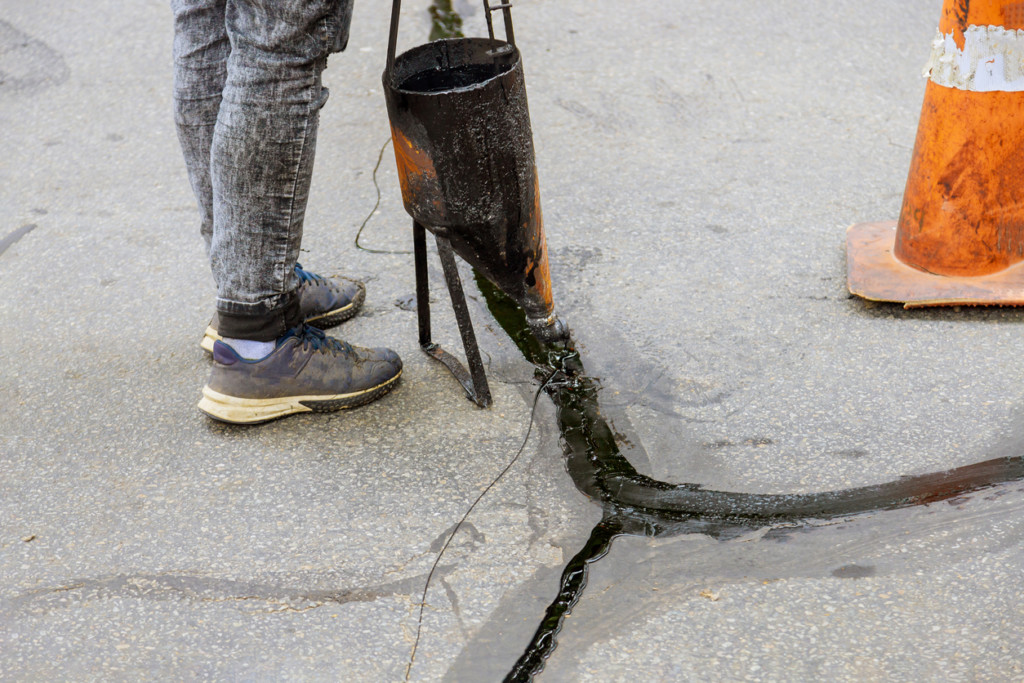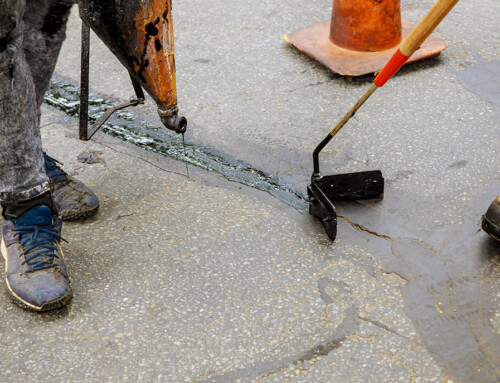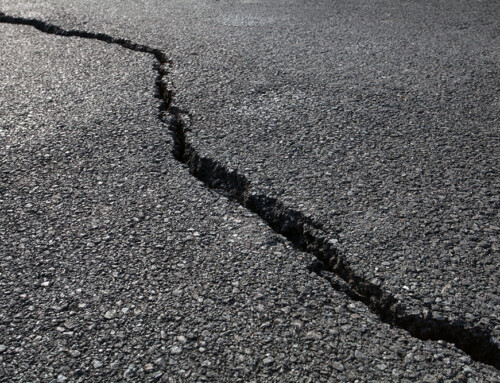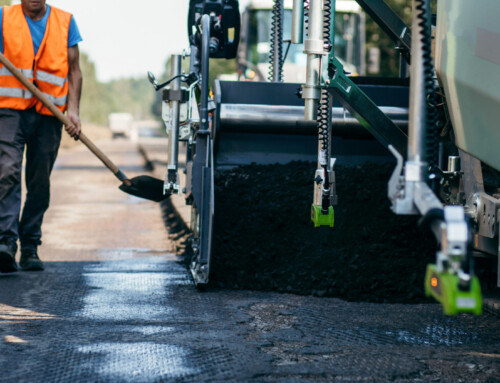
Does your asphalt driveway need repair? Asphalt is an extremely durable paving material, but it is still susceptible to wear and tear over time from weather and vehicle traffic. How do you know when your asphalt driveway needs to be repaired? And what will asphalt repair entail? Get the answers to these questions and more in this complete guide to asphalt repair.
Signs Your Driveway Needs Repair
The main signs of wear and tear that you’ll see on your asphalt driveway are:
- Cracks. Asphalt is susceptible to cracking due to fluctuations in temperature and weight from vehicles.
- Potholes. When water sits in certain spots or when cracks become severe, potholes can form in your asphalt.
- Low spots. When water seeps into cracks and under the asphalt, the ground underneath can become uneven. These low spots will get worse as water collects in them.
- Discoloration. Some places on your driveway may become discolored due to damage from motor oil, leaves and plant debris, and snow and ice.
If you notice any of these signs, you should contact an asphalt company that handles residential paving.
Repair vs. Replacement
In some cases your asphalt may simply need to be repaired. In other cases it may need to be completely repaved. Sometimes your needs may fall somewhere in between. How do you know what’s necessary for your driveway? Have an asphalt paving company evaluate it and provide the necessary repairs.
- Crack Sealing. If your driveway has some cracks but is otherwise in decent shape, you may just need a crack sealing job done. Filling the cracks and sealing your driveway will prevent the cracks from worsening and keep moisture from seeping down into the sublayer.
- Pothole Repair. If your driveway has some potholes they should be filled and repaired as soon as possible. Potholes, like cracks, will only get worse with time. When you address them early they can be repaired and spare you a complete resurfacing.
- Resurfacing. When there are extensive cracks, potholes, and other damage to your driveway, it may need to be completely resurfaced. This process involves scraping off the top damaged layer and laying down a new layer of asphalt. This is still easier than starting from scratch.
- Complete Replacement. When the sublayer underneath your driveway is damaged from moisture and no longer even, you may need a complete repaving job. This involves ripping up the existing asphalt, preparing a new surface, and putting down new asphalt.
Preventing Damage with Asphalt Maintenance
Regular asphalt maintenance can keep your driveway from developing cracks, potholes, and other damage. Asphalt maintenance basically involves periodic sealing of your driveway. Every 1-3 years you should have a sealcoating applied to your asphalt driveway. This prevents moisture from getting into small cracks so that they don’t become larger. Professional sealcoating application will ensure your driveway is fully protected from the effects of weather and vehicles.
Signs Your Sealcoating is Working
If you’re trying to determine if your driveway needs a new sealcoating, check your driveway after it rains. The water should bead up in small droplets, indicating that the water is being repelled instead of absorbed. If you don’t see this, it may be time to have your driveway sealed.
Asphalt Repair and Weather
An important factor in asphalt paving and repair jobs is the weather. For a simple sealcoating job, you only need about 3 days of dry weather. For a new paving job or an asphalt replacement, you need 5-7 days of dry weather.
Residential Paving by Topwest Asphalt
Does your driveway need repair or replacement? Topwest Asphalt provides a full range of residential paving services. We can evaluate the condition of your driveway and make a recommendation for the best way to restore it. We also provide asphalt maintenance services to keep your driveway in excellent condition.
Call 604-857-3126 today to request service or get a free quote. We look forward to helping you restore and maintain your asphalt driveway.





